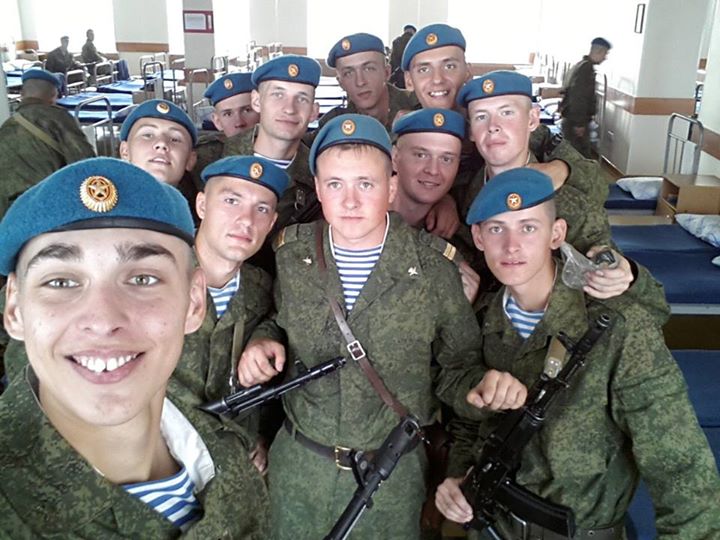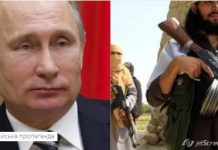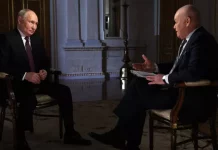
Almost two dozen Russian soldiers died on July 13, when part of a military barracks in suddenly collapsed. The men who perished in the tragedy were as young as 18, and not a soul among them was born before 1991. Speaking through his press secretary, President Putin conveyed his condolences to the families of those who died and promised medical aid to the 19 survivors.
On Russian television, however, the incident passed relatively unnoticed. In the days after the accident, the men who died were laid to rest throughout the country in funerals held in their hometowns. The burials did not make the evening news.
On July 15, in a Facebook post that has been shared more than 12,400 times and “liked” more than 16,000 times, RFE/RL’s Elena Rykovtseva wrote a scathing attack against the Russian television news media, faulting the national networks for ignoring the human side of the tragedy. Given the text’s great popularity and how profoundly it seems to resonate with Russian Internet users, RuNet Echo offers the following English-language translation of Rykovtseva’s post.
THEIR NAMES HAVEN’T BEEN MENTIONED ONCE ON ANY OF THE NATIONAL TV NETWORKS
- R.Shaihulin, October 5, 1994
- B.Sudnikovich, January 4, 1995
- A.Polegenko, January 17, 1997
- R.Yumagulov, March 29, 1991
- M.Ignatenko, January 20, 1996
- R.Filyanin, July 24, 1996
- M.Ivanov, October 22, 1996
- V.Chemezov, October 19, 1996
- S.Vahrushev
- Filatov, August 18, 1996
- R.Altynbaev, June 14, 1994
- D.Kenih, November 16, 1996
- A.Gritskov, January 30, 1996
- E.Belov, December 3, 1995
- B.Nafikov, 21.09.1996
- O.Kortusov, March 16, 1996
- A.Shokaev, November 5, 1994
- E.Herman, July 30, 1995
- F.Mamliev, September 2, 1996
- E.Reshetnikov, September 30, 1996
- AM.Igoshev, April 6, 1996
- A.Shingareev, April 24, 1997
- V.Lomaev, January 29, 1997
Five of them were buried today in Omsk. Another two went into the ground in Novosibirsk. They’ve declared a day of mourning in Orenburg, too. The dead are also arriving in Irkutsk, Bashkiria, and St. Petersburg. People are crying across the whole country, but it’s no longer an issue for the national TV networks. “[Ukrainian nationalist group] Pravyi Sektor is marching on Europe. The Ukrainian authorities can’t manage the radicals.” This is how their goddamn news broadcasts begin. And there’s not a word about our dead boys.
At this moment, there are funerals happening in Omsk—already for the second day in a row. But there’s no news coming out of there. Not a single live broadcast. And I remember well how Rossiya-24 aired around-the-clock coverage of Lugansk separatist [Alexey] Mozgovoi’s funeral. I remember how it went on endlessly, as the mic was handed off to family, then friends, and then locals, and how everyone cried in their speeches about what a great and wonderful patron and protector he was. When it comes to our own boys in the Russian army, who incidentally wanted fanatically to serve as paratroopers, there’s not a thing on television. Nobody broadcasts the reactions, or the condolences of a single living mourner—apart from Putin’s sympathy, as retold by [his press secretary Dmitry] Peskov. And this was only on the first day.
Yesterday, on the second day, now speaking before a group of students in Klyazma, [Putin] no longer remembered these other young men. He smiled and he beamed and he congratulated the crowd on the day’s fine weather. It was as if the Omsk barracks never happened. The victims’ names were never read on a single national TV network. The men are nameless—all 23 of them.
It’s nothing personal, guys.
But each of these boys has his own social media page, and there are photographs. And it would have been possible at least to say something—anything—about these men, and about their families. Something about Oleg Kortusov, for instance, who was a promising fighter and whose fiancée is expecting a child. Or something about Egor German, another local from Omsk, who leaves behind a baby born less than a year ago.
And this is to say nothing about helping the victims’ loved ones—those close to the men who died and who survived. They transferred another Omsk soldier, Volodya Petrov, to Moscow, and the Defense Ministry is paying for his treatment, but they didn’t allocate any money to his family for their train transportation or accommodations in the city. And his mother has nothing. That’s why the city of Omsk banded together and raised money to help her.
For some reason, they don’t want to talk about this on their national TV networks, with their audience of millions. For some reason, they don’t want to say even one human thing about these guys, or ask the country if maybe it, too, would like to offer some help, in addition to the one-time assistance their families received from the state (which they don’t get right away, incidentally)?
But I don’t want to talk about these people and their TV stations anymore. Let them live with their shame. I just want to tell those boys goodbye. And also in their memory, I want to publish this photograph [see above], which I found on the social media page of one of them, Sergei Filatov. He’s the one second in from the right in the last row in the back. In the front is Valery Lomaev from St. Petersburg. He died, too. The photo is from July 12, a few hours before the tragedy, inside the very same barracks.
By Kevin Rothrock, Global Voices





